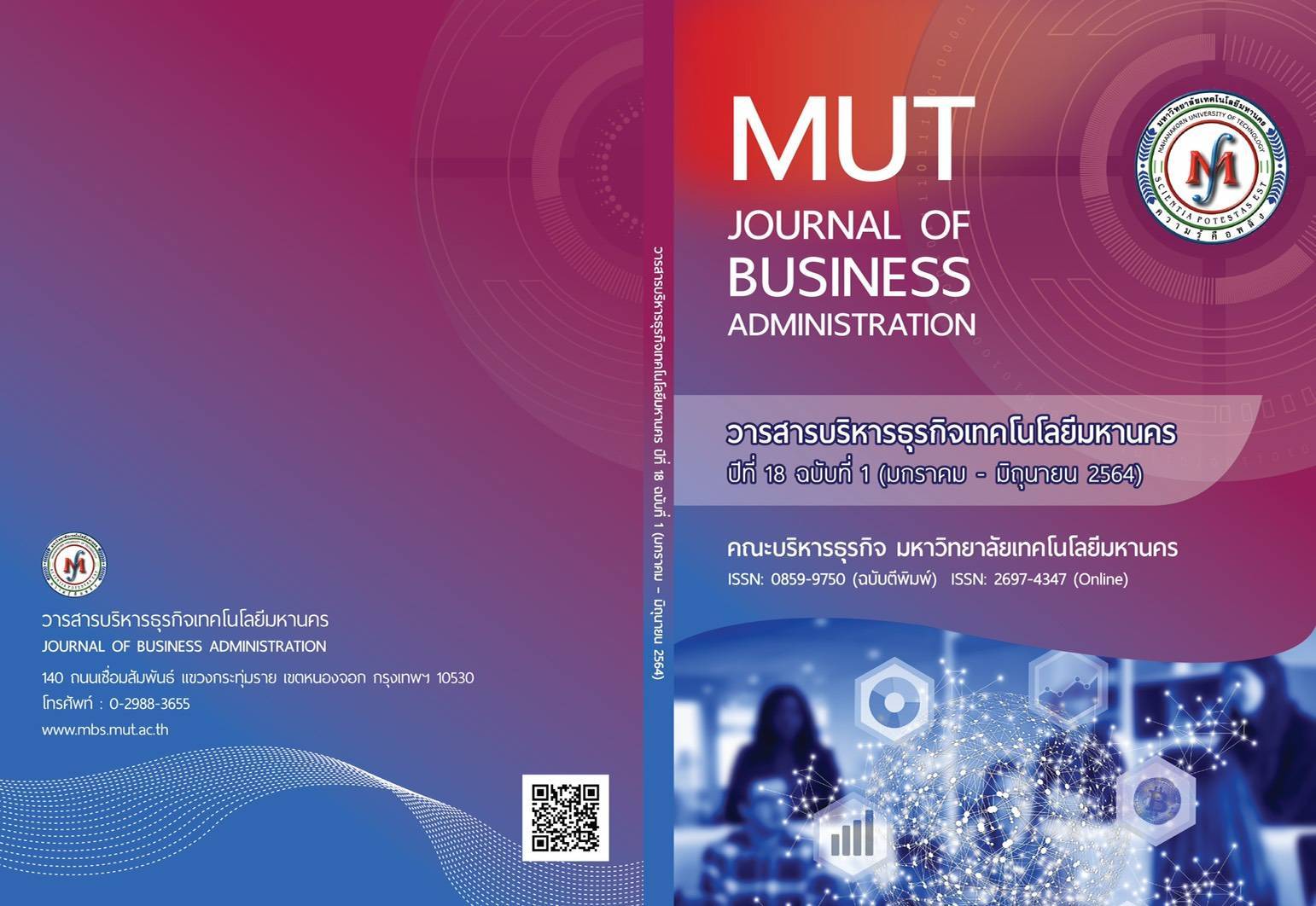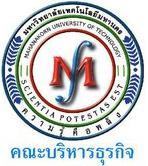Factors affecting Self-Regulated Learning of Generation Z (GEN Z) students of Mahanakorn University of Technology*
Keywords:
Self-Regulated Learning, Generation Z (GEN Z), Self-Efficacy, Game AddictionAbstract
The objectives of this study were (1) to study the level of self-regulation in learning of Generation Z (GEN Z) students of Mahanakorn University of Technology, and (2) to study factors affecting self-regulation in learning of Generation Z (GEN Z) students of Mahanakorn University of Technology. The sample consisted of 400 students of Mahanakorn University of Technology. The research instrument was the questionnaire consisting of six sections: general personal information, morality test, game addiction screening test, self-regulated learning test, Suanprung Stress Test-20 (SPST-20) of Department of Mental Health, and test of self-efficacy in learning. The collected data were analyzed using a statistical package program. The statistics used to analyze data were percentage, mean, standard deviation, t-test, and ANOVA and stepwise multiple regression analysis. The results of the present study indicated that (1) the overall average of self-regulation in learning of Generation Z (GEN Z) students of Mahanakorn University of Technology was at a high level, and (2) self-regulation in learning had predictive power of 33.80 percent. The students’ self-regulation was predicted by self-efficacy ( = 0.414), followed by morals ( = 0.258) and game addiction behavior ( = -0.178) respectively.
Downloads
Published
Issue
Section
License
ข้อความ ข้อคิดเห็น ข้อมูล เนื้อหา รูปภาพ แผนภูมิ แผนผัง เป็นต้น ที่ปรากฏและแสดงในบทความต่างๆ ในวารสารบริหารธุรกิจเทคโนโลยีมหานคร ถือเป็นความรับผิดชอบโดยตรงของผู้เขียนบทความนั้นๆ มิใช่เป็นความรับผิดชอบใดๆ ของวารสารบริหารธุรกิจเทคโนโลยีมหานคร และมหาวิทยาลัยเทคโนโลยีมหานคร
บทความที่ตีพิมพ์ในวารสารบริหารธุรกิจเทคโนโลยีมหานคร ถือเป็นลิขสิทธิ์เฉพาะของคณะบริหารธุรกิจ มหาวิทยาลัยเทคโนโลยีมหานคร หากบุคคลหรือหน่วยงานใดต้องการนำทั้งหมดหรือส่วนใดส่วนหนึ่งไปเผยแพร่ต่อหรือเพื่อกระทำการใดๆ จะต้องได้รับการอนุญาตเป็นลายลักษณ์อักษรจากคณะบริหารธุรกิจ มหาวิทยาลัยเทคโนโลยีมหานครก่อนเท่านั้น


